The lustration question is further complicated by the action of a single person. In the summer of 1992, the fervent anti-communist and Charter 77signatory Petr Cibulka got hold of computer files containing what seemed to be an accurate copy of the StB’s archives. Cibulka was so disgusted by the new democracy’s lenient treatment of the Bolshevik regime’s loyal servants that he published a list of some 80,000 StB informers, completed with cover names and birth dates. So, since anyone is free to check out Cibulka’s lists on the Internet, isn’t it time to stop clowning about and close this dreary chapter of Czech history?
Well, a majority of Czech politicians, supported by the highest judicial body in the country, believe it’s not. In late 2001, after lengthy negotiations, the venerable judges at the Constitutional Court in Brno (see: Moravia) concluded that the Czech Republic still has both the right and the duty to defend its institutions against persons who during the communist tyranny didn’t behave loyally to democratic principles.
In March 2003, the Czechs took a further step towards a settlement with the country’s totalitarian past when the StB’s archives, with all their stories about human bravery and treason, were opened to the public. In other words, lustres will be falling on Czech heads also in the twenty-first century.
The intellectual elite, who in the second half of nineteenth century launched a cultural revival that would subsequently lead to the creation of a Czech political nation, used two literati as their standard bearers.
While one of them, Božena Němcová (see: Feminism) wrote a boring, pathetic and from a literary viewpoint completely worthless “novel” about the goody-goody Babička (Grandmother), the second, Karel Hynek Mácha was a poet whose brilliance is absolutely unquestionable. His large lyrical poem Máj (May) is probably the best piece of literature ever written in the Czech language, and his compatriots are too modest when they praise him as Lord Byron’s equal.
Incredibly enough, this literary genius is virtually unknown outside Bohemiaand Moravia.
Mácha was born in 1810 in the Czech-speaking family of a poor miller’s assistant and grew up at Prague’s Malá Strana. As practically bilingual — all schools at that time taught in German— the young literate became an ardent fan of Goethe and later also of Mickiewicz, the romantic superstars at that time. When not writing, he enjoyed taking mortally long walks in the idyllic Bohemian nature, visiting castle ruins and, most of all, chasing women. “I’m looking for the ideal in every woman I meet, but I only find women in beautiful creatures,” he once complained.
In the early 1830s he finally found her. Eleonora “Lori” Schom was a succulent German-speaking girl who seemed to be as obsessed with life’s fleshly delights as Mácha himself was. Although hot-tempered and extremely jealous (to prevent Lori from even seeing other men, he strictly prohibited her to leave her house), Mácha undoubtedly got the inspiration to write Czech literature’s ultimate masterpiece from his fiancée.
Máj was published in 1836, in 600 modest copies, and even though his earlier short stories were highly praised by local critics, Mácha had to borrow money to finance the project. Formally, this grand lyrical poem consists of melodious sonnets that are grouped in four chapters and two intermezzos. Its main idea was, according to the author himself, “to cheer the beautiful spring and all the emotions connected to it”. Needless to say, a romantic of Mácha’s calibre interpreted these emotions as burning love, which he described through the intense and tragic affair between the poem’s main hero, Vilém, and the beautiful Jarmila.
In complete accordance with his romantic poetry, Mácha never lived to experience Máj’s unbelievable popularity, but came to a tragic end. Shortly after he was appointed assistant to the municipal judge in Litoměřice (he frequently walked the 70 kilometres to Prague to romp with Lori), he caught cholera and died a week before his 26th birthday from “suffocation and diarrhoea”. He was hastily buried on the same day that he and Lori had planned their wedding. Their son Ludvík, who was born a month before Mácha’s death, followed his father to the grave less than a year later.
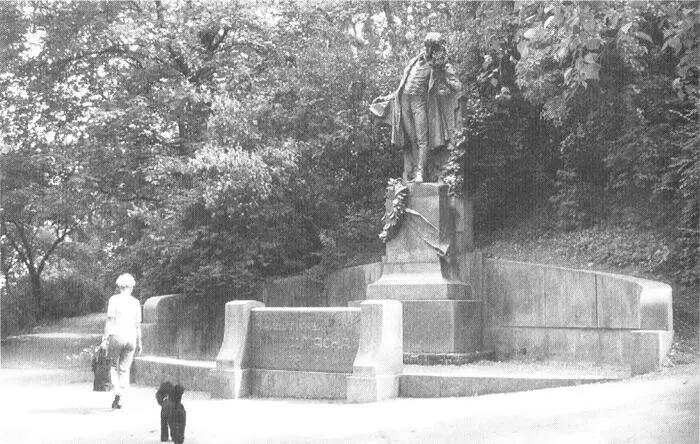
Photo © Terje B. Englund
Measured in tragedy, the poet’s real life almost outdid that of his poetry. This fact, in addition to Máj's indisputable literary quality, unleashed a virtual Mácha cult among the Czechs. This cult, which still is alive and kicking, is built on two pillars — one nationalistic, and one romantic.
Mácha became a national symbol only days after he was buried in Litoměřice, and a requiem mass was held in the St. Ignatius Church at Prague’s Charles Square. More or less the entire cultural elite attended the mass, which consequently turned into a grand manifestation of Czech patriotism. During the following century Máj was published in more than 100 editions, and after the Velvet Revolutionin 1989, his intimate diary, originally written in code, was also made available to the common reader.
Among the entries were laconic pearls such as “Today, only masturbation, damn and blast it!”
Mácha’s role as a national symbol was clearly demonstrated after the tragic Munich Agreementin September 1938, when Czechoslovakia was pressed to cede Litoměřice and the rest of the Sudeten areas to Nazi Germany. Only days before German tanks rolled in, the poet’s remains were hastily exhumed from the graveyard and then transported to Prague. The great poet’s second burial in “Czech soil”, at Prague’s Slavín cemetery (see: Horáková, Milada), turned out to be an even bigger manifestation of Czech patriotism than the requiem mass that had taken place more than a century earlier. Since then, Mácha’s remains have rested in peace, but three decades later, after the Russianinvasion in 1968, the Bolsheviks were scared to death that another tragic hero — Jan Palach— would cause a similar cult.
The romantic part of Mácha’s legacy, however, is both more pleasant and relevant.
Every spring, in the evening of the first day in May, hordes of amorous couples march in the falling dusk up the steep path leading to Mácha’s statue on the blossoming Petřín Hill in Prague’s Malá Strana. There, they leave some flowers to commemorate the greatest poet in Czech history. And, indirectly, also to demonstrate that Mácha’s real message was not that of nationalism, but of love.
Any foreignerwho spends more than 15 minutes in the company of Czechs will discover that they are capable of making jokes about practically anything. The more morbid, cynical and taboo-breaking the jokes are, the louder the bursts of laughter.
There is, however, one inviolable exception: Tomáš G. Masaryk — Czechoslovakia’s first president. Only communists could have been suspected of ridiculing “TGM” or “President Liberator”, which are the canonized versions of his name, but as everybody knows, the Bolsheviksdon’t have enough of a sense of humour even to make bad jokes.
Ever since the media after the Velvet Revolutionstarted to publish ranking lists of the greatest Czechs of all times, Masaryk (1850 — 1937) has been the unquestioned winner. This is not too surprising, since he is personally regarded as the decisive force in the creation of Czechoslovakia, and he is the unrivalled symbol of Czechoslovakia’s First Republic(1918-1938). In other words, Masaryk is to the Czechs and also quite a few Slovakswhat Kemal Atatürk is to the Turks — although he didn’t share the latter’s love for booze and military parades.
Читать дальше
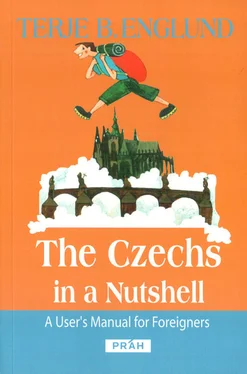


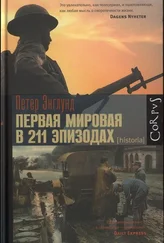

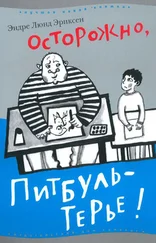
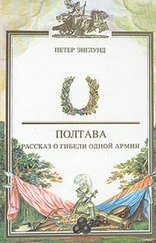


![Theresa Cheung - The Dream Dictionary from A to Z [Revised edition] - The Ultimate A–Z to Interpret the Secrets of Your Dreams](/books/692092/theresa-cheung-the-dream-dictionary-from-a-to-z-r-thumb.webp)



